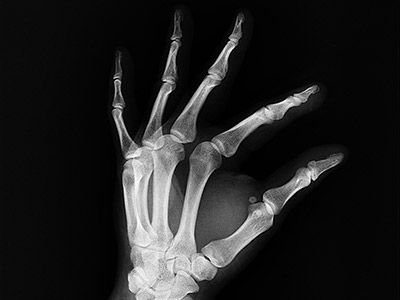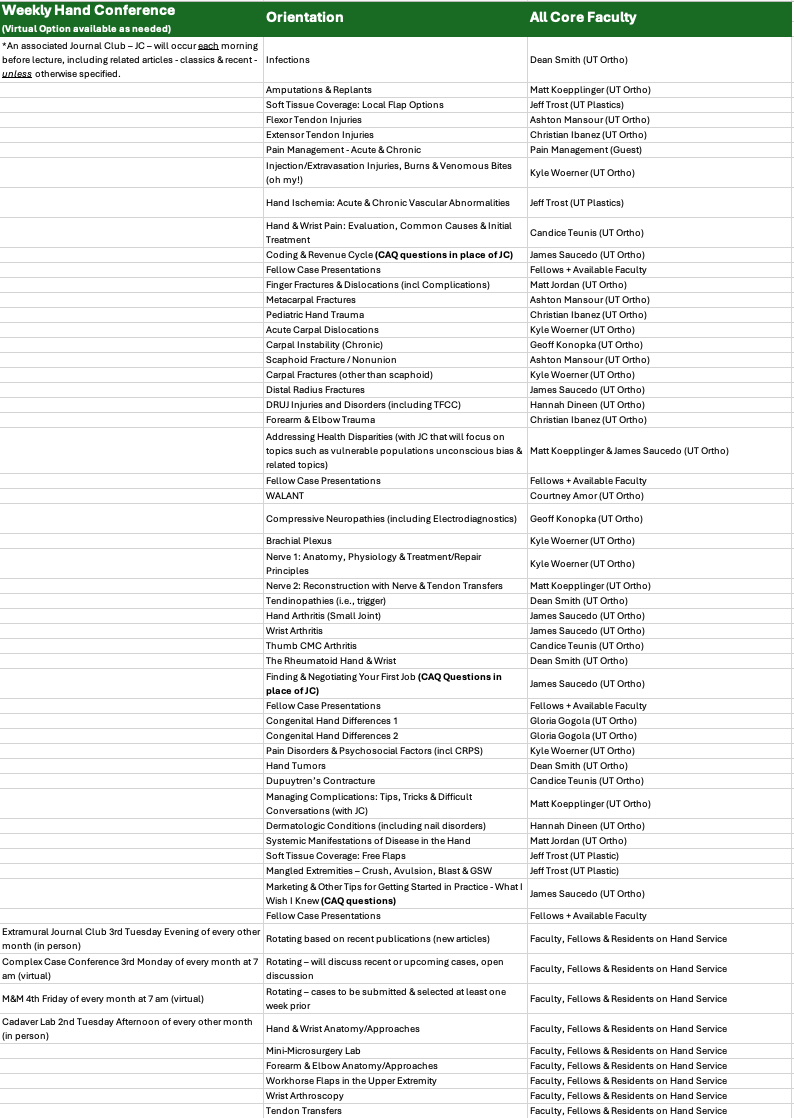Hand Fellowship Curriculum
The conference schedule will be established and posted at the beginning of each year. Calendar invitations will be sent to all faculty, fellows, and rotating residents and included in a shared calendar.
Tuesday Morning Core Didactics
Format: Held weekly and available virtually.
Attendance: Tracked electronically via QR codes or virtual attendance records. Fellows are expected to attend and are exempt from clinical duties during this time.

Structure: Sessions consists of a Journal Club discussion of classic and high impact articles (30 minutes) followed by a topic aligned lecture on the topic.
Curriculum: Forty-eight topics have been selected, including clinical concepts, health disparities, and practice management topics such as coding and revenue cycles.
Fellow Presentations: At the end of each block, fellows will present complex cases, providing an opportunity to assess their clinical experience and understanding of fundamental principles.
Morbidity & Mortality (M&M) Conference: Held virtually every 4th Friday at 7 AM, with participation from all fellows and available faculty.
Extramural Journal Club: Takes place every other month on the 3rd Tuesday at a restaurant or faculty member’s home. Fellows will select articles in consultation with the program director or designated faculty. This setting encourages open discussion of new and current publications and hot topics in a relaxed environment.
Cadaver/Skills Lab: Scheduled every other month on the 2nd Tuesday afternoon, focusing on anatomy, surgical approaches, and technical skills. Additional labs may be scheduled as needed or requested.
Complex Case Conference: Held virtually every 3rd Monday at 7 AM, where attendings and fellows present and discuss ongoing challenging cases. These discussions provide clinical insights, expose trainees to evidence-based decision-making, and highlight potential research opportunities in areas with limited existing evidence. Faculty will model collaborative and supportive communication throughout these discussions.
This structured curriculum ensures a balanced approach to learning, combining didactic education, hands-on training, and collaborative case discussions to foster a comprehensive and well-rounded fellowship experience.
